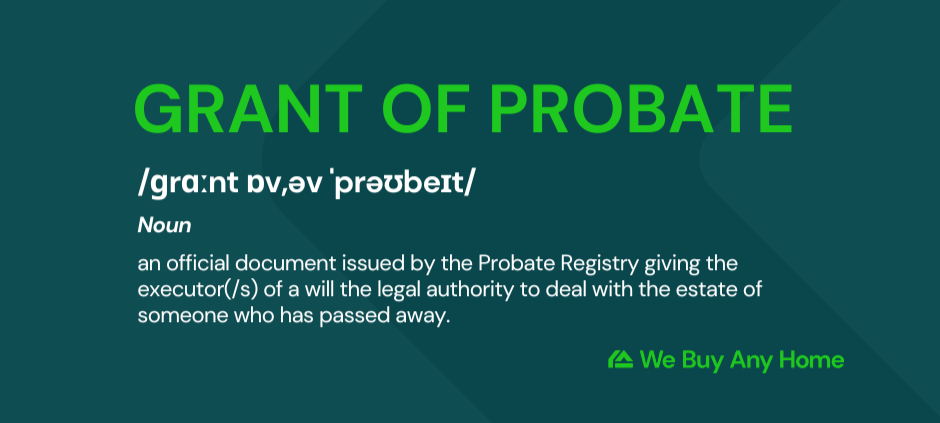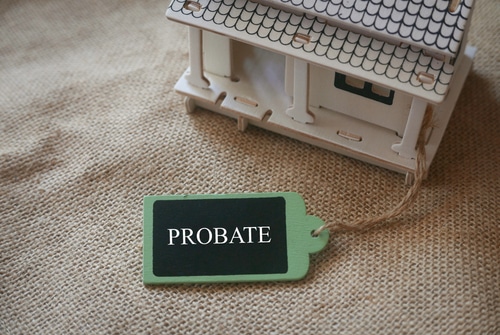When you lose a loved one, you must go through the probate process.
If you are the designated executor of their will, it’s especially essential to understand what it is and how it works.
Read on to learn more.
Grant of Probate

A Grant of Probate is an official document issued by the Probate Registry.
It gives the executor(s) of a will the legal authority to deal with the estate of someone who has died by:
- Accessing assets (including Managing the valuation of the estate
- Distributing assets (per the will’s terms)
- Paying debts or fees owed by the deceased (these are paid from the estate)
- Organising any outstanding estate administration matters.
In short, with a Grant of Probate, the executor gains the power (and responsibility) to manage the deceased person’s estate.
How long a house stay in a deceased person’s name
In theory, there is no set limit on how long a house can stay in a deceased owner’s name.
However, in practice, the property’s deeds will be transferred to the new owners’ name after the probate process is complete.
When a Grant of Probate is issued
The Probate Registry will issue a Grant. It first establishes that the will is legally valid and the executor(s) named are entitled to be given authority over the estate.
This process is usually straightforward.
However, in some cases, there may be disputes over the validity of a will. Or uncertainty over who should rightfully be appointed executor.
When you need a Grant of Probate
In most cases involving a will, applying for a Grant of Probate is necessary.
It is particularly useful in the following circumstances:
- The deceased person owned property, land or other significant assets solely in their name
- Assets over £5,000 are held in the sole name of the deceased
- The deceased person had outstanding debts or liabilities which need to be resolved
- Inheritance tax needs to be calculated and paid on the estate (stamp duty does not apply)
- There are legal disputes over the will or entitlement to be an executor
Certain companies and organisations request a Grant even for lower-value assets before they engage with an executor.
For example, some banks, utility providers and insurance firms have this policy.
Grant of Probate cost
Yes, there are fees involved in obtaining a Grant of Probate. The cost depends on the type of Grant and the total value of the estate:
- In England and Wales, the standard probate application fee is £273, whether you use a solicitor or apply directly
- ‘Excepted estates’ under £5,000 have no fees to pay.
Grant of Letters of Administration
Suppose there is no will, and the estate is administered under intestacy rules.
In that case, a ‘Grant of Letters of Administration’ is issued instead. The fees for this are similar.
Legal fees will also apply if a solicitor is hired to obtain the Grant of Probate on the executor’s behalf.
Solicitor fees often range from £1,000-£5,000, depending on the estate’s size and complexity.
The importance of probate properties
Properties are usually the most significant assets involved in probates.
So, managing them is an integral part of the executor’s work. During probate, they are referred to as probate properties.
Unlike regular properties, probate properties can’t be:
- Lived in (without the executor’s explicit consent)
- Altered (decorated, renovated, etc.)
- Emptied (or have anything removed from them).
This can cover transferring the name the property is in, the mortgage, and more.
Once the probate process is finished, the person who inherits the property is free to do what they want.
This can include selling it, renting it out, leaving it empty, etc.


















